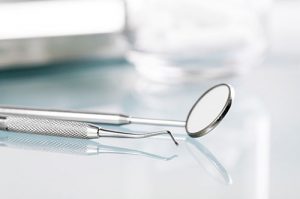Dentures Near Me Sun City AZ: Types, Care & Benefits
Are you missing teeth and looking for a solution to your smile? Dentures – or false teeth – can be an affordable yet aesthetically pleasing way to restore the look of your mouth. But what exactly are dentures, and how do they work? In this blog post, we’ll answer all your questions about the types, care, and long-term benefits of having dentures fitted by professionals at Dentures Near Me Sun City AZ. Learn more about why when it comes to a beautiful smile restoration choice – there’s no substitute for expertly crafted dentures!
What are Dentures and How Do They Work
Dentures are removable prosthetic devices that are used to replace missing teeth. They are made to fit snugly over the gums and cover the areas where teeth are missing. Dentures can be a great alternative for those who have lost teeth due to injury, decay, or old age, and are looking to restore the functionality and aesthetic appeal of their smile.
Dentures are made from a variety of materials, including acrylic resin, porcelain, and metal. The base of the dentures is typically made from acrylic resin, while the teeth can be made from porcelain or resin. Metal clasps may also be used to anchor the dentures to the remaining teeth.
There are two main types of dentures: partial and complete. Partial dentures are used to replace one or more missing teeth and are typically made of a combination of metal and acrylic resin. Complete dentures, on the other hand, are used when all of the teeth are missing. They can be made of either acrylic resin or porcelain.
To create a set of dentures, a thorough examination of the mouth is first performed. Impressions of the gums and remaining teeth are taken to ensure a proper fit. Several appointments are typically needed to make adjustments to the dentures to ensure a comfortable and secure fit.
Maintaining good oral hygiene is essential when it comes to caring for dentures. They should be brushed daily to remove any plaque or food particles. Soaking the dentures in a special solution can also help keep them clean and prevent bacterial growth.
One of the most significant benefits of dentures is the ability to improve the appearance of your smile while also restoring proper chewing function. Dentures can also help support the facial muscles and prevent sagging of the cheeks and lips, which can occur when teeth are missing.
Different Types of Dentures
There are several different types of dentures available, each with its own unique benefits and considerations.
- Traditional Full Dentures: These dentures are used to replace all of the natural teeth in the top or bottom part of the mouth. They are typically made of acrylic resin and are designed to fit securely over the gums. Full dentures can restore the look and function of an entire smile, but they may require some adjustment period to get used to.
- Immediate Dentures: These dentures are made in advance and are placed in the mouth immediately after the natural teeth have been extracted. Immediate dentures can provide patients with a temporary solution until their permanent dentures are ready, but they may need to be readjusted as the gums heal and shrink.
- Partial Dentures: Partial dentures are typically used to replace one or more missing teeth. They are often made of a combination of metal and acrylic resin and are designed to fit snugly around the remaining natural teeth. Partial dentures can prevent the remaining teeth from shifting and can also improve chewing function.
- Flexible Dentures: These dentures are made of a flexible material that conforms to the shape of the gums, making them more comfortable to wear. Flexible dentures can also prevent the discomfort and irritation that can be caused by traditional acrylic dentures.
- Implant-Supported Dentures: These dentures are anchored in place by dental implants, which are surgically placed into the jawbone. Implant-supported dentures are often considered to be the most comfortable and secure option, offering greater stability and a more natural feel.
Benefits of Wearing Dentures
The benefits of wearing dentures go beyond just restoring the appearance of your smile. Dentures also offer several health advantages that can improve your overall well-being. One of the most significant benefits of dentures is that they help maintain proper oral health. Missing teeth can cause the remaining teeth to shift or shift out of place, leading to a misaligned bite and jaw pain. Dentures can prevent this from happening, ensuring that your remaining teeth remain in their correct position.
Additionally, dentures can also aid in digestion and improve your ability to chew food. With the proper alignment of teeth, you can effectively break down food, making it easier to swallow and digest. This can lead to better overall nutrition and health.
Another benefit of dentures is that they can help support the muscles in your face and mouth, helping to prevent facial sagging and the appearance of premature aging. Dentures provide support to your cheeks, lips, and jawline, giving your face a fuller and more youthful appearance.
Dentures can also boost your self-confidence and self-esteem, allowing you to feel more comfortable and relaxed in social situations. With your beautiful new smile, you can confidently interact with others without worrying about feeling self-conscious or embarrassed about missing teeth.
Lastly, dentures are a cost-effective and affordable solution for replacing missing teeth. They are less invasive than other types of tooth replacement procedures and can provide similar results. With proper care and maintenance, dentures can last for many years, making them a worthy investment in your oral health and well-being.
Maintenance for Dentures
Caring for your dentures is essential to ensure their longevity and effectiveness. Proper maintenance can prevent damage, infections, and discomfort, and ensure that your dentures fit correctly. Here are some tips for caring for your dentures:
- Clean your dentures every day: Dentures need to be cleaned daily to remove plaque, food debris, and other particles. Brush them thoroughly with a soft-bristled brush and a non-abrasive denture cleaner or mild soap. Never use regular toothpaste or harsh cleaners, as they can damage the denture’s surface.
- Rinse your dentures after meals: After eating, remove your dentures and rinse them thoroughly under running water. This can help remove any food particles that may be caught between the gums and dentures.
- Soak your dentures overnight: Overnight soaking can help keep your dentures clean and prevent bacterial growth. Use a specially formulated denture cleanser or a mix of water and vinegar or baking soda. Avoid soaking in hot water, which can cause the dentures to warp.
- Handle your dentures with care: Dentures are fragile and can break easily if mishandled. Always handle them with care, using both hands to avoid dropping them. Do not use excessive force when cleaning or inserting the dentures.
- Visit your dentist regularly: Regular dental checkups are important for maintaining good oral health and ensuring that your dentures fit correctly. Your dentist can check your dentures for signs of wear and tear, make any necessary adjustments, and clean them thoroughly.
- Avoid exposure to extreme temperatures: Dentures can warp if exposed to high temperatures, so avoid hot liquids and foods. Similarly, cold temperatures can cause dentures to become brittle, so avoid freezing them.
Why You Should Visit a Denture Clinic
If you are missing teeth and considering dentures as a solution, it is essential to visit a denture clinic for professional consultation and fitting. Here are some reasons why you should visit a denture clinic:
- Expertise and Experience: Denture clinics have experienced professionals who specialize in creating and fitting dentures. They have the knowledge and skills to assess your oral health and determine the right solution for your unique needs. They can also make adjustments to your dentures over time to ensure a comfortable and secure fit.
- Personalized Care: Every patient has unique oral health needs, and denture clinics offer personalized care to meet those needs. The professionals at a denture clinic take the time to understand your oral health background, preferences, and expectations to create tailored solutions that work best for you.
- High-Quality Materials: Denture clinics use high-quality materials to create dentures that are durable, comfortable, and aesthetically pleasing. They ensure that the dentures are made with materials that are safe for your mouth and can last for many years with proper care and maintenance.
- Comprehensive Services: Denture clinics offer a wide range of services to meet all your denture needs, from consultation and fitting to repairs and maintenance. They can also provide advice on how to care for your dentures and prevent problems like infections and damage.
- State-of-the-art Technology: Denture clinics invest in the latest technology and equipment to create dentures that are precise and accurate. They use digital imaging, 3D printing, and other advanced techniques to ensure that your dentures fit perfectly and look natural.
- Support and Follow-Up: Denture clinics offer ongoing support and follow-up to ensure that your dentures are functioning properly and meeting your expectations. They can also make adjustments and repairs as needed to keep your dentures in good condition.
Understanding the Cost of Dentures
Dentures are an affordable solution for those seeking to restore their smile after losing teeth due to injury, decay, or aging. However, the cost of dentures can vary depending on several factors, including the type of denture being used, the materials used to make them, and the complexity of the fitting process.
Traditional full dentures typically cost between $1,300 and $3,000 per plate, depending on the materials used. Porcelain dentures tend to be more expensive than acrylic or resin, but they also tend to be more durable and long-lasting. Immediate dentures, which are placed immediately after tooth extraction, can cost anywhere from $1,500 to $3,500.
Partial dentures are less expensive than full dentures, ranging from $700 to $1,800. The cost can vary depending on the number of teeth being replaced and the materials used.
Flexible dentures, which are made of a flexible material that conforms to the shape of your gums, can be more expensive, ranging from $1,000 to $4,000. However, they tend to be more comfortable than traditional acrylic dentures and can prevent soreness or irritation.
Implant-supported dentures tend to be the most expensive option, with an average cost ranging from $3,500 to $30,000 per plate. The cost can vary depending on the number of implants needed and the materials used for the denture.
In addition to the initial cost of the dentures, patients should also consider the ongoing costs associated with maintenance and repairs. Dentures may need to be relined or adjusted over time to ensure a good fit, which can cost anywhere from $100 to $300. Cleaning solutions and other supplies can also add to the overall cost.
Many insurance plans provide coverage for dentures, but patients should check with their provider to determine the extent of coverage and any limitations or restrictions.
In conclusion, the cost of dentures can vary depending on several factors, including the type of denture, materials used, and additional maintenance or repairs required. However, despite the cost, dentures are an affordable and effective solution for those seeking to restore their smile and improve their oral health. Patients should consult with a qualified denture professional to determine the best option for their unique needs and budget.



